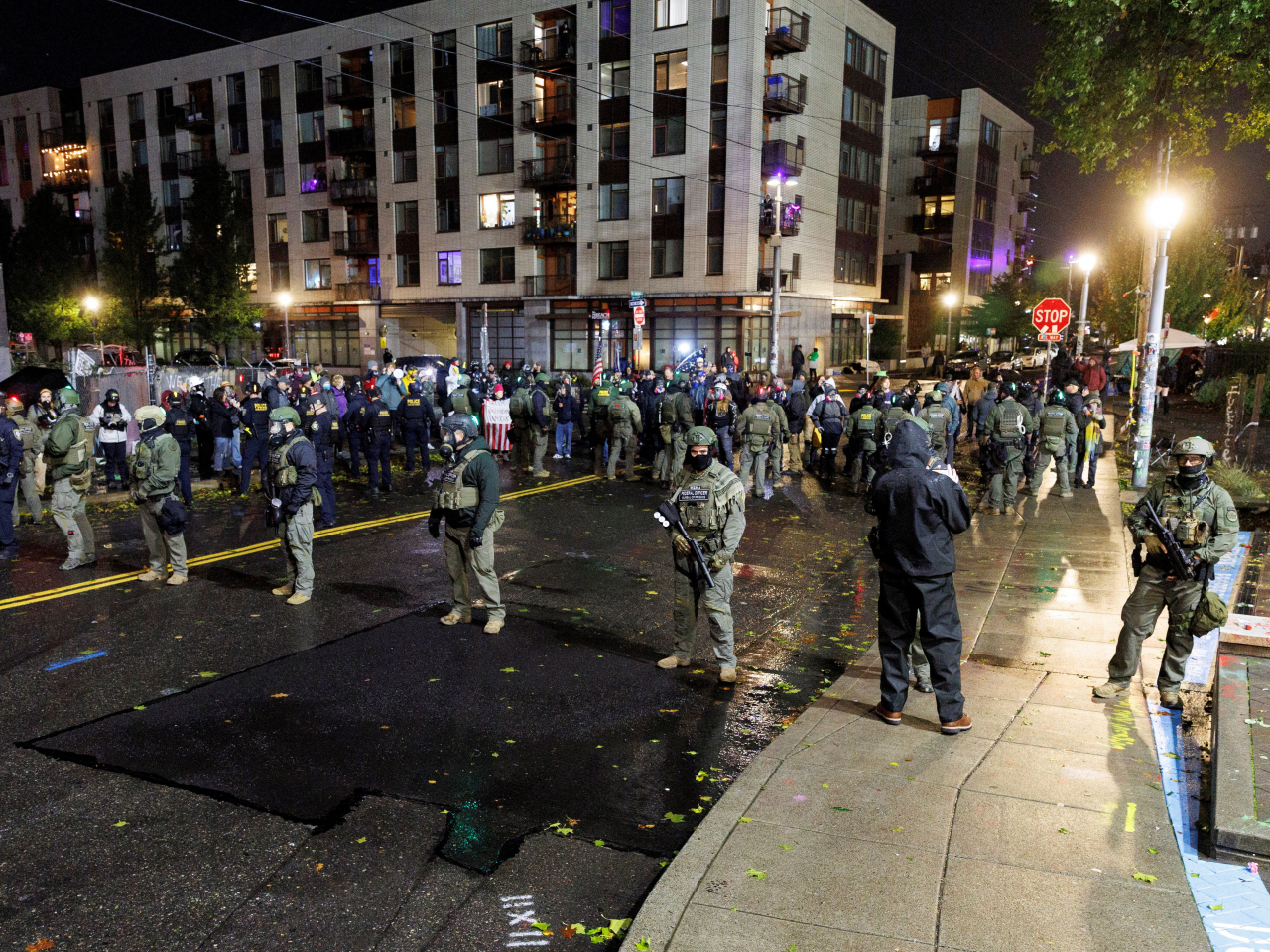A US federal judge in Oregon has barred President Donald Trump’s administration from deploying the National Guard to Portland, Oregon, until at least Friday, saying she “found no credible evidence” that protests in the city grew out of control before he federalised the troops earlier this fall.
The city and state sued in September to block the deployment.
It's the latest development in weeks of legal back-and-forth in Portland, Chicago and other US cities as the Trump administration has moved to federalise and deploy the National Guard in city streets to quell protests.
The ruling from US District Court Judge Karin Immergut, a Trump appointee, followed a three-day trial in which both sides argued over whether protests at the city’s US Immigration and Customs Enforcement building met the conditions for using the military domestically under federal law.
In a 16-page filing late Sunday, Immergut said she would issue a final order on Friday due to the voluminous evidence presented at trial, including more than 750 exhibits.
The purpose of the deployment, according to the Trump administration, is to protect federal personnel and property where protests are occurring or likely to occur.
Legal experts said that a higher appellate court order that remains in effect would have barred troops from being deployed anyway.
Immergut wrote that most violence appeared to be between protesters and counter-protesters and found no evidence of “significant damage” to the immigration facility at the centre of the protests.
"Based on the trial testimony, this Court finds no credible evidence that during the approximately two months before the President’s federalisation order, protests grew out of control or involved more than isolated and sporadic instances of violent conduct that resulted in no serious injuries to federal personnel,” she wrote.
The complex case comes as Democratic cities targeted by Trump for military involvement – including Chicago, which has filed a separate lawsuit on the issue – seek to push back.
They argue the president has not satisfied the legal threshold for deploying troops and that doing so would violate states’ sovereignty.
The administration argues that it needs the troops because it has been unable to enforce the law with regular forces – one of the conditions set by Congress for calling up troops.
Immergut issued two orders in early October that blocked the deployment of the troops leading up to the trial.
She previously found that Trump had failed to show that he met the legal requirements for mobilising the National Guard.
She described his assessment of Portland, which Trump has called “war-ravaged” with “fires all over the place”, as “simply untethered to the facts”.
One of Immergut’s orders was paused on October 20 by a three-judge panel of the 9th US Circuit Court of Appeals.
But late on Tuesday, the appeals court vacated that decision and said it would rehear the matter before an 11-judge panel.
Until the larger panel rehears the case, the appeals court’s initial order from early October – under which the National Guard is federalised but not deployed – remains in effect. (AP)





